FORSTER (E.M.)Archive assembled by P.N. (Nick) Furbank for his biography of his friend E.M. Forster, being a comprehensive collection of letters, photographs, research material, books and other publications, comprising:
i) Four autograph letters signed ("E.M. Forster", "Morgan") to Nick Furbank ("Dear Nick"), the first confirming his wishes for the posthumous publication of Maurice ("...If my present literary exor. (Jack Sprott) does not feel inclined to publish the MS after my death, I should like the right to do so to pass to you... either publish in the ordinary way or issue privately...") and informing him that Christopher Isherwood might publish it in the U.S.A.; with a typed copy of Isherwood's letter to Jack Sprott on the matter; the second (first page only) on the health of Bob Buckingham; the third on the death of his godson Robin Buckingham, saying he hasn't got the letters from George Orwell and talking of his travels; the final letter in the hand of Joe Ackerley signed shakily by Forster, formally asking if he would "...write a biography or criticism of me after my death?... All the additional material for all this is in the second drawer of my bureau in my Cambridge sitting-room. Jack has a key of this drawer... You can use anything you like in it...", 7 pages, dust-staining at folds, 4to and 8vo, King's College, Cambridge and Coventry, 17 February 1956, 4 May and 12 November 1962, 26 April [19]67;
ii) Correspondence to E.M. Forster from various correspondents, including: Benjamin Britten (4 letters, 3 cards), William Plomer (3 letters, one discussing Maurice "...the happy ending seems to me in a sense the whole point of the book... magnificent..."), Christopher Isherwood (from Ecuador, describing "...Little Britain, with tea and RAF slang and Churchill pinups and talk about the Royal Wedding..." and praising the "young American writer" Truman Capote), John Morris of the BBC (describing an altercation with Nirad Chaudhuri on the British in India), Paul Cadmus Siegfried Sassoon (2 letters, one mentioning T.E. Lawrence, another with a drawing), literary editor Joe Ackerley (3 letters, 3 postcards, one regarding Forster's short story The Other Boat), Stephen Spender, and others, c.70 pages, 4to and smaller, 1912 to 1970; with a large quantity of correspondence from the above-mentioned friends of E.M. Forster and others to the Buckinghams, the majority to May;
iii) Correspondence to E.M. Forster from Bob Buckingham comprising some 76 letters on a wide range of topics, discussing family news and mutual friends, his work as a policeman, (including an amusing account of arresting a 'Bright Young Thing' on Piccadilly ("...roused all my Communist blood..."), his distaste at the behaviour of crowds at George V's funeral in January 1936 ("...if we had left them alone they would have pulled him out of the coffin and torn him up for souvenirs..."), appointing Forster as his executor ("...you are the best friend anyone ever had and I do hope we shall be able to snatch a little more happiness together..."), his pacifism, London in the Blitz, mutual friends (on Stephen Tennant "...Do you think he knows there is a war on or is he ignoring it like the French aristocrats ignored the guillotine..."), gratitude for Forster's financial help and much else, plus typescripts of articles on India, sketching and rowing, some marked "Keep" by Forster; with a further 14 from his wife May on largely family matters, c.240 pages, 4to and 8vo, London and Coventry, 1933-1966 [c.37 undated];
iv) Research papers including a large quantity of correspondence to P.N. Furbank sending reminiscences of E.M. Forster, making suggestions to his text, and giving permission to use their letters, from Forster's friends and acquaintances, such as Joe Ackerley on the publication of Maurice which, in his opinion, is "...dead as the dodo and can go into the wastepaper basket as far as I am concerned...", William Golding ("...he was so old but he positively bounded about..."), William Plomer (sending notes from his diary), Noel Annan, Evert Barger, Quentin Bell Rebecca West ("...My recollections of E.M. Forster were few and not happy..."), Christopher Isherwood, E.V. Thompson and others, c.300 pages, 4to and smaller, [1960's to 1980's]; with other correspondence to Furbank from writers such as Frank Lissauer and Peer Hultberg, c.190 pages, 4to and smaller; typescript diary entries recording meetings and conversations with Forster between May 1952 and November 1967, 12 pages, 4to;
v) Collection of c.40 photographs, loose and in an album, depicting Forster, his family and friends such as Roger Fry the Bargers, Jack Sprott and Anwar Masood, some inscribed on reverse by Forster ("Roger Fry, inspired by local scenery", "Wisley July 1931"), two of Forster as a child, gelatin silver prints, some press photographs and later prints, various sizes; with a booklet of 24 small photographs of the exterior and gardens of West Hackhurst (one published in the biography); and c.140 postcards, the majority collected by Forster, some in embroidered fabric silk-lined pouches entitled "India", "Egypt", "Herts", "Hants", "Abinger", some inscribed by Forster on reverse; seven Edwardian greetings cards from Forster to May Buckingham in envelope labelled "Very funny greetings cards from Morgan";
vi) Papers of Harry Daley (1901-1971), policeman, friend and lover of E.M. Forster, including 23 densely typed and autograph letters from Daley to Furbank ("...You asked if I had much feeling for him and, assuming you meant sexual feeling, I gave an emphatic 'Oh no!'... but I was often pleased to give pleasure to my homosexual friends. If you meant affectionate feeling then the answer is an equally emphatic 'Oh yes!'..."), speaking frankly of their relationship, of showing Forster the world of the criminal classes in Notting Hill ("...My chatter with Morgan must have been chiefly about costers and boxers, gangsters, fishermen and lorry drivers..."), many anecdotes of their meetings, music and literature, his opinion of Bob Buckingham and Forster's relationship with him ("...never read a book before he met Morgan..."), homosexuality ("...Morgan's homosexuality got a good airing. Poor Bob... He once told Joe that I was silly to admit being homo. Because if ever I was challenged by Authority I wouldn't have a leg to stand on... it will be difficult for you to mention me in your book except as a stepping stone to Bob..."), giving a graphic description of Forster's sexual preferences ("...No buggery, of course..."), describing himself as "...vulgar, indiscreet, a security risk, quick-tempered and as unfaithful as an old Tomcat – not at all what Morgan wanted or deserved...", c.90 pages, 4to, Dorking, 17 March 1968 to 17 August 1970; with incoming correspondence to Daley from Forster (one autograph letter, arranging to meet for tea, photocopies of nine others), Joe Ackerley, Raymond Mortimer, Stephen Spender, Duncan Grant commenting on the manuscript of Daley's autobiography (published posthumously) This Small Cloud, mostly 1960's; photocopies of Daley's articles on the life of a policeman in The Listener, 1929-1933, and five seemingly unpublished manuscript articles; Furbank's notes, press cuttings etc.; collection of c.25 photographs, some published in This Small Cloud, of family, in his uniform, of various young men, some in underwear, one being arrested by Daley, another two behind bars, boxers, Joe Ackerley in bed (1920's), etc.;
vii) Books and printed matter, comprising association and presentation copies and Furbank's research library, including:
LUARD (C.E.) et al. Dewas State Gazetteer, signed by Forster on the flyleaf, annotated in his hand throughout particularly on foldout family tree, Bombay, Bombay Education Society, 1907; FORSTER (E.M.) Alexandria: A History and a Guide, inscribed to Bob Buckingham 'Bob with Morgan's love this once more only. Christmas 1953', Alexandria, Whitehead Morris, 1938; KIDWAI (JALIL A.) Sir Syed Ross Masood Souvenir, Forster's copy, Karachi, Ross Masood Education & Culture Society of Pakistan, 1964; WHICHELO (H.M.) Hints to Amateurs; or, Rules for the Use of the Black Lead Pencil, note by Forster on slip of paper 'My grandfather whom I never knew. Much loved by his indigent family', Published by the author, Spa Farm, Esher, 1849; RUSKIN (JOHN) Modern Painters, Vols II, III, IV, V, signed by Forster on vols II, III, IV, ownership inscription of R.H. Inglis Synnot, dated 1857 in vol. II, annotated by Forster, Synnot and Furbank, Smith, Elder, 1856 and 1860; Symbolic Realism in American Painting 1940-1950, exhibition catalogue, cover signed 'E.M. Forster', ICA, [1950];
FORSTER (E.M.) Maurice, CORRECTED PROOF COPY, annotated by Furbank throughout in pencil and ink, with letter from William Webb suggesting corrections to later Penguin edition of October 1988, Edward Arnold, 1971--The Celestial Omnibus and other Stories, FIRST EDITION, pencil presentation inscription 'Agnes Janan Jones from EL' and notes by Furbank, Sidgwick & Jackson, 1911--Pharos and Pharillon, FIRST EDITION, ownership inscription 'P.N. Furbank', Richmond, Hogarth Press, 1923--The New Disorder, FIRST EDITION, signed by Forster and Paul Cadmus numbered xix, New York, 1949--Marianne Thornton 1797-1887, FIRST EDITION, inscription 'Nick from Francis with love June 1956', Edward Arnold, 1956;
ACKERLEY (J.R.) E.M. Forster: A Portrait, FIRST EDITION, Ian McKelvie, 1970 (2); KIDWAI (JALIL A. ed.), Forster-Masood Letters, FIRST EDITION, inscribed by the author to Furbank, Karachi, 1984; with other limited-edition publications, first editions, biographies and reference books, including the Abinger Edition of E.M. Forster (13 vols.); LAGO (M.) and P.N. FURBANK. Selected Letters of E.M. Forster, FIRST EDITION, Collins, 1983 and 1985—Calendar of the Letters of E.M. Forster, FIRST EDITION, York, Mansell, 1985; FURBANK (P.N.) E.M. Forster: A Life, FIRST EDITION, inscription to author's mother in second volume, Secker & Warburg, 1977, 1978, and others (49)Footnotes'EITHER PUBLISH IN THE ORDINARY WAY OR ISSUE PRIVATELY': The P.N. Furbank archive of E.M. Forster material, collected for his definitive biography, including Forster's letter authorising the posthumous publication of Maurice and candid reminiscences from friends and lovers.
Furbank's biography of his friend E.M. Forster brought wide acclaim on its publication in 1977. He met Forster in the mid-1940's when appointed fellow and director of studies in English at Emmanuel College, Cambridge. Forster at that time was living in rooms at King's and the two struck up a close friendship. In 1960, Forster asked William Plomer to undertake the task of writing his biography. However, it soon transpired that Plomer found it impossible to describe Forster's sexuality, so Forster turned to Furbank, who had no such scruples, a decision which Plomer himself acknowledged as 'inspired' (Guardian, obituary of P.N. Furbank, 2014). Alan Turing was another Cambridge friend and Furbank also became his literary executor on Turing's death in 1954.
Among these papers is the letter from Forster instructing Furbank to undertake the posthumous publication of his most controversial novel Maurice. The work was begun in 1912 and, fifty years later, Forster had written the words "Publishable – but worth it?" on the typescript, still fearing the furore that would inevitably ensue at a time when homosexuality was still illegal. In our letter, he finally gives permission for Furbank to bypass his literary executor Jack Sprott and to publish it somehow, whether "in the ordinary way" or privately, and in a later letter included here, gives him free rein with his papers for the biography ("...All the additional material for all this is in the second drawer of my bureau in my Cambridge sitting-room. Jack has a key of this drawer... You can use anything you like in it..."). Maurice was published in 1971 to a mixed reception. As these letters show, opinions on the novel, even amongst Forster's milieu differed considerably, varying from "magnificent" (William Plomer) to Joe Ackerley's comment that it could have been "...written by any randy, frustrated, middle-aged queen masturbating over the wishful thought the dream of love ...". None of the Forster letters are published in Furbank and Lago's Selected Letters of 1985; two of the four, that of 17 February 1956 and 12 November 1962 are listed in the Calendar as F882 and F961 respectively.
In addition to giving an insight into the biographer's art, the archive demonstrates Forster's key position at the centre of a circle of gay friends and acquaintances and his involvement in that world. Amongst the most revealing material is a group of candid and exuberant letters from Harry Daley (1901-1971) who has been described as 'the first openly gay British policeman'. Furbank describes him as '...plump, curly-haired, genial and rather cocky in manner: very intelligent, with a taste for music and opera, and a brilliant raconteur. He was homosexual and made no secret of it; indeed he was wildly indiscreet. His closest friends, and lovers, were mainly criminals...' (Furbank, p.140). He was Forster's lover for some seven years and the letters here spare no detail of the physical side of their relationship but also demonstrate a great fondness and protectiveness towards the author. Popular with his colleagues and the public on his beat (which may have explained how he avoided prosecution), he was also a keen amateur photographer and, although he was renowned for rarely making arrests, took homo-erotic photographs of the staged arrests of handsome young criminals, which included some of his lovers, as demonstrated in our collection: '...his victim peering pathetically through the bars of a Black Maria or held by Harry in a masterful grip...' (Furbank, p.140). In 1929 he was selected by Joe Ackerley, then a BBC radio producer, to give a series of popular talks about his police service, which supposedly became the inspiration for the television series Dixon of Dock Green. With his associates spanning the criminal and literary worlds, he was painted in his police uniform in 1931 by Duncan Grant and a photograph of the artist with the painting is also included in the lot.
A complete listing for the archive is available upon request.
Provenance: P.N. ('Nick') Furbank (1920-2014); his friend and executor Dr W.R. Owens, the present owner (see adjacent lots).
FORSTER (E.M.)Archive assembled by P.N. (Nick) Furbank for his biography of his friend E.M. Forster, being a comprehensive collection of letters, photographs, research material, books and other publications, comprising:
i) Four autograph letters signed ("E.M. Forster", "Morgan") to Nick Furbank ("Dear Nick"), the first confirming his wishes for the posthumous publication of Maurice ("...If my present literary exor. (Jack Sprott) does not feel inclined to publish the MS after my death, I should like the right to do so to pass to you... either publish in the ordinary way or issue privately...") and informing him that Christopher Isherwood might publish it in the U.S.A.; with a typed copy of Isherwood's letter to Jack Sprott on the matter; the second (first page only) on the health of Bob Buckingham; the third on the death of his godson Robin Buckingham, saying he hasn't got the letters from George Orwell and talking of his travels; the final letter in the hand of Joe Ackerley signed shakily by Forster, formally asking if he would "...write a biography or criticism of me after my death?... All the additional material for all this is in the second drawer of my bureau in my Cambridge sitting-room. Jack has a key of this drawer... You can use anything you like in it...", 7 pages, dust-staining at folds, 4to and 8vo, King's College, Cambridge and Coventry, 17 February 1956, 4 May and 12 November 1962, 26 April [19]67;
ii) Correspondence to E.M. Forster from various correspondents, including: Benjamin Britten (4 letters, 3 cards), William Plomer (3 letters, one discussing Maurice "...the happy ending seems to me in a sense the whole point of the book... magnificent..."), Christopher Isherwood (from Ecuador, describing "...Little Britain, with tea and RAF slang and Churchill pinups and talk about the Royal Wedding..." and praising the "young American writer" Truman Capote), John Morris of the BBC (describing an altercation with Nirad Chaudhuri on the British in India), Paul Cadmus Siegfried Sassoon (2 letters, one mentioning T.E. Lawrence, another with a drawing), literary editor Joe Ackerley (3 letters, 3 postcards, one regarding Forster's short story The Other Boat), Stephen Spender, and others, c.70 pages, 4to and smaller, 1912 to 1970; with a large quantity of correspondence from the above-mentioned friends of E.M. Forster and others to the Buckinghams, the majority to May;
iii) Correspondence to E.M. Forster from Bob Buckingham comprising some 76 letters on a wide range of topics, discussing family news and mutual friends, his work as a policeman, (including an amusing account of arresting a 'Bright Young Thing' on Piccadilly ("...roused all my Communist blood..."), his distaste at the behaviour of crowds at George V's funeral in January 1936 ("...if we had left them alone they would have pulled him out of the coffin and torn him up for souvenirs..."), appointing Forster as his executor ("...you are the best friend anyone ever had and I do hope we shall be able to snatch a little more happiness together..."), his pacifism, London in the Blitz, mutual friends (on Stephen Tennant "...Do you think he knows there is a war on or is he ignoring it like the French aristocrats ignored the guillotine..."), gratitude for Forster's financial help and much else, plus typescripts of articles on India, sketching and rowing, some marked "Keep" by Forster; with a further 14 from his wife May on largely family matters, c.240 pages, 4to and 8vo, London and Coventry, 1933-1966 [c.37 undated];
iv) Research papers including a large quantity of correspondence to P.N. Furbank sending reminiscences of E.M. Forster, making suggestions to his text, and giving permission to use their letters, from Forster's friends and acquaintances, such as Joe Ackerley on the publication of Maurice which, in his opinion, is "...dead as the dodo and can go into the wastepaper basket as far as I am concerned...", William Golding ("...he was so old but he positively bounded about..."), William Plomer (sending notes from his diary), Noel Annan, Evert Barger, Quentin Bell Rebecca West ("...My recollections of E.M. Forster were few and not happy..."), Christopher Isherwood, E.V. Thompson and others, c.300 pages, 4to and smaller, [1960's to 1980's]; with other correspondence to Furbank from writers such as Frank Lissauer and Peer Hultberg, c.190 pages, 4to and smaller; typescript diary entries recording meetings and conversations with Forster between May 1952 and November 1967, 12 pages, 4to;
v) Collection of c.40 photographs, loose and in an album, depicting Forster, his family and friends such as Roger Fry the Bargers, Jack Sprott and Anwar Masood, some inscribed on reverse by Forster ("Roger Fry, inspired by local scenery", "Wisley July 1931"), two of Forster as a child, gelatin silver prints, some press photographs and later prints, various sizes; with a booklet of 24 small photographs of the exterior and gardens of West Hackhurst (one published in the biography); and c.140 postcards, the majority collected by Forster, some in embroidered fabric silk-lined pouches entitled "India", "Egypt", "Herts", "Hants", "Abinger", some inscribed by Forster on reverse; seven Edwardian greetings cards from Forster to May Buckingham in envelope labelled "Very funny greetings cards from Morgan";
vi) Papers of Harry Daley (1901-1971), policeman, friend and lover of E.M. Forster, including 23 densely typed and autograph letters from Daley to Furbank ("...You asked if I had much feeling for him and, assuming you meant sexual feeling, I gave an emphatic 'Oh no!'... but I was often pleased to give pleasure to my homosexual friends. If you meant affectionate feeling then the answer is an equally emphatic 'Oh yes!'..."), speaking frankly of their relationship, of showing Forster the world of the criminal classes in Notting Hill ("...My chatter with Morgan must have been chiefly about costers and boxers, gangsters, fishermen and lorry drivers..."), many anecdotes of their meetings, music and literature, his opinion of Bob Buckingham and Forster's relationship with him ("...never read a book before he met Morgan..."), homosexuality ("...Morgan's homosexuality got a good airing. Poor Bob... He once told Joe that I was silly to admit being homo. Because if ever I was challenged by Authority I wouldn't have a leg to stand on... it will be difficult for you to mention me in your book except as a stepping stone to Bob..."), giving a graphic description of Forster's sexual preferences ("...No buggery, of course..."), describing himself as "...vulgar, indiscreet, a security risk, quick-tempered and as unfaithful as an old Tomcat – not at all what Morgan wanted or deserved...", c.90 pages, 4to, Dorking, 17 March 1968 to 17 August 1970; with incoming correspondence to Daley from Forster (one autograph letter, arranging to meet for tea, photocopies of nine others), Joe Ackerley, Raymond Mortimer, Stephen Spender, Duncan Grant commenting on the manuscript of Daley's autobiography (published posthumously) This Small Cloud, mostly 1960's; photocopies of Daley's articles on the life of a policeman in The Listener, 1929-1933, and five seemingly unpublished manuscript articles; Furbank's notes, press cuttings etc.; collection of c.25 photographs, some published in This Small Cloud, of family, in his uniform, of various young men, some in underwear, one being arrested by Daley, another two behind bars, boxers, Joe Ackerley in bed (1920's), etc.;
vii) Books and printed matter, comprising association and presentation copies and Furbank's research library, including:
LUARD (C.E.) et al. Dewas State Gazetteer, signed by Forster on the flyleaf, annotated in his hand throughout particularly on foldout family tree, Bombay, Bombay Education Society, 1907; FORSTER (E.M.) Alexandria: A History and a Guide, inscribed to Bob Buckingham 'Bob with Morgan's love this once more only. Christmas 1953', Alexandria, Whitehead Morris, 1938; KIDWAI (JALIL A.) Sir Syed Ross Masood Souvenir, Forster's copy, Karachi, Ross Masood Education & Culture Society of Pakistan, 1964; WHICHELO (H.M.) Hints to Amateurs; or, Rules for the Use of the Black Lead Pencil, note by Forster on slip of paper 'My grandfather whom I never knew. Much loved by his indigent family', Published by the author, Spa Farm, Esher, 1849; RUSKIN (JOHN) Modern Painters, Vols II, III, IV, V, signed by Forster on vols II, III, IV, ownership inscription of R.H. Inglis Synnot, dated 1857 in vol. II, annotated by Forster, Synnot and Furbank, Smith, Elder, 1856 and 1860; Symbolic Realism in American Painting 1940-1950, exhibition catalogue, cover signed 'E.M. Forster', ICA, [1950];
FORSTER (E.M.) Maurice, CORRECTED PROOF COPY, annotated by Furbank throughout in pencil and ink, with letter from William Webb suggesting corrections to later Penguin edition of October 1988, Edward Arnold, 1971--The Celestial Omnibus and other Stories, FIRST EDITION, pencil presentation inscription 'Agnes Janan Jones from EL' and notes by Furbank, Sidgwick & Jackson, 1911--Pharos and Pharillon, FIRST EDITION, ownership inscription 'P.N. Furbank', Richmond, Hogarth Press, 1923--The New Disorder, FIRST EDITION, signed by Forster and Paul Cadmus numbered xix, New York, 1949--Marianne Thornton 1797-1887, FIRST EDITION, inscription 'Nick from Francis with love June 1956', Edward Arnold, 1956;
ACKERLEY (J.R.) E.M. Forster: A Portrait, FIRST EDITION, Ian McKelvie, 1970 (2); KIDWAI (JALIL A. ed.), Forster-Masood Letters, FIRST EDITION, inscribed by the author to Furbank, Karachi, 1984; with other limited-edition publications, first editions, biographies and reference books, including the Abinger Edition of E.M. Forster (13 vols.); LAGO (M.) and P.N. FURBANK. Selected Letters of E.M. Forster, FIRST EDITION, Collins, 1983 and 1985—Calendar of the Letters of E.M. Forster, FIRST EDITION, York, Mansell, 1985; FURBANK (P.N.) E.M. Forster: A Life, FIRST EDITION, inscription to author's mother in second volume, Secker & Warburg, 1977, 1978, and others (49)Footnotes'EITHER PUBLISH IN THE ORDINARY WAY OR ISSUE PRIVATELY': The P.N. Furbank archive of E.M. Forster material, collected for his definitive biography, including Forster's letter authorising the posthumous publication of Maurice and candid reminiscences from friends and lovers.
Furbank's biography of his friend E.M. Forster brought wide acclaim on its publication in 1977. He met Forster in the mid-1940's when appointed fellow and director of studies in English at Emmanuel College, Cambridge. Forster at that time was living in rooms at King's and the two struck up a close friendship. In 1960, Forster asked William Plomer to undertake the task of writing his biography. However, it soon transpired that Plomer found it impossible to describe Forster's sexuality, so Forster turned to Furbank, who had no such scruples, a decision which Plomer himself acknowledged as 'inspired' (Guardian, obituary of P.N. Furbank, 2014). Alan Turing was another Cambridge friend and Furbank also became his literary executor on Turing's death in 1954.
Among these papers is the letter from Forster instructing Furbank to undertake the posthumous publication of his most controversial novel Maurice. The work was begun in 1912 and, fifty years later, Forster had written the words "Publishable – but worth it?" on the typescript, still fearing the furore that would inevitably ensue at a time when homosexuality was still illegal. In our letter, he finally gives permission for Furbank to bypass his literary executor Jack Sprott and to publish it somehow, whether "in the ordinary way" or privately, and in a later letter included here, gives him free rein with his papers for the biography ("...All the additional material for all this is in the second drawer of my bureau in my Cambridge sitting-room. Jack has a key of this drawer... You can use anything you like in it..."). Maurice was published in 1971 to a mixed reception. As these letters show, opinions on the novel, even amongst Forster's milieu differed considerably, varying from "magnificent" (William Plomer) to Joe Ackerley's comment that it could have been "...written by any randy, frustrated, middle-aged queen masturbating over the wishful thought the dream of love ...". None of the Forster letters are published in Furbank and Lago's Selected Letters of 1985; two of the four, that of 17 February 1956 and 12 November 1962 are listed in the Calendar as F882 and F961 respectively.
In addition to giving an insight into the biographer's art, the archive demonstrates Forster's key position at the centre of a circle of gay friends and acquaintances and his involvement in that world. Amongst the most revealing material is a group of candid and exuberant letters from Harry Daley (1901-1971) who has been described as 'the first openly gay British policeman'. Furbank describes him as '...plump, curly-haired, genial and rather cocky in manner: very intelligent, with a taste for music and opera, and a brilliant raconteur. He was homosexual and made no secret of it; indeed he was wildly indiscreet. His closest friends, and lovers, were mainly criminals...' (Furbank, p.140). He was Forster's lover for some seven years and the letters here spare no detail of the physical side of their relationship but also demonstrate a great fondness and protectiveness towards the author. Popular with his colleagues and the public on his beat (which may have explained how he avoided prosecution), he was also a keen amateur photographer and, although he was renowned for rarely making arrests, took homo-erotic photographs of the staged arrests of handsome young criminals, which included some of his lovers, as demonstrated in our collection: '...his victim peering pathetically through the bars of a Black Maria or held by Harry in a masterful grip...' (Furbank, p.140). In 1929 he was selected by Joe Ackerley, then a BBC radio producer, to give a series of popular talks about his police service, which supposedly became the inspiration for the television series Dixon of Dock Green. With his associates spanning the criminal and literary worlds, he was painted in his police uniform in 1931 by Duncan Grant and a photograph of the artist with the painting is also included in the lot.
A complete listing for the archive is available upon request.
Provenance: P.N. ('Nick') Furbank (1920-2014); his friend and executor Dr W.R. Owens, the present owner (see adjacent lots).
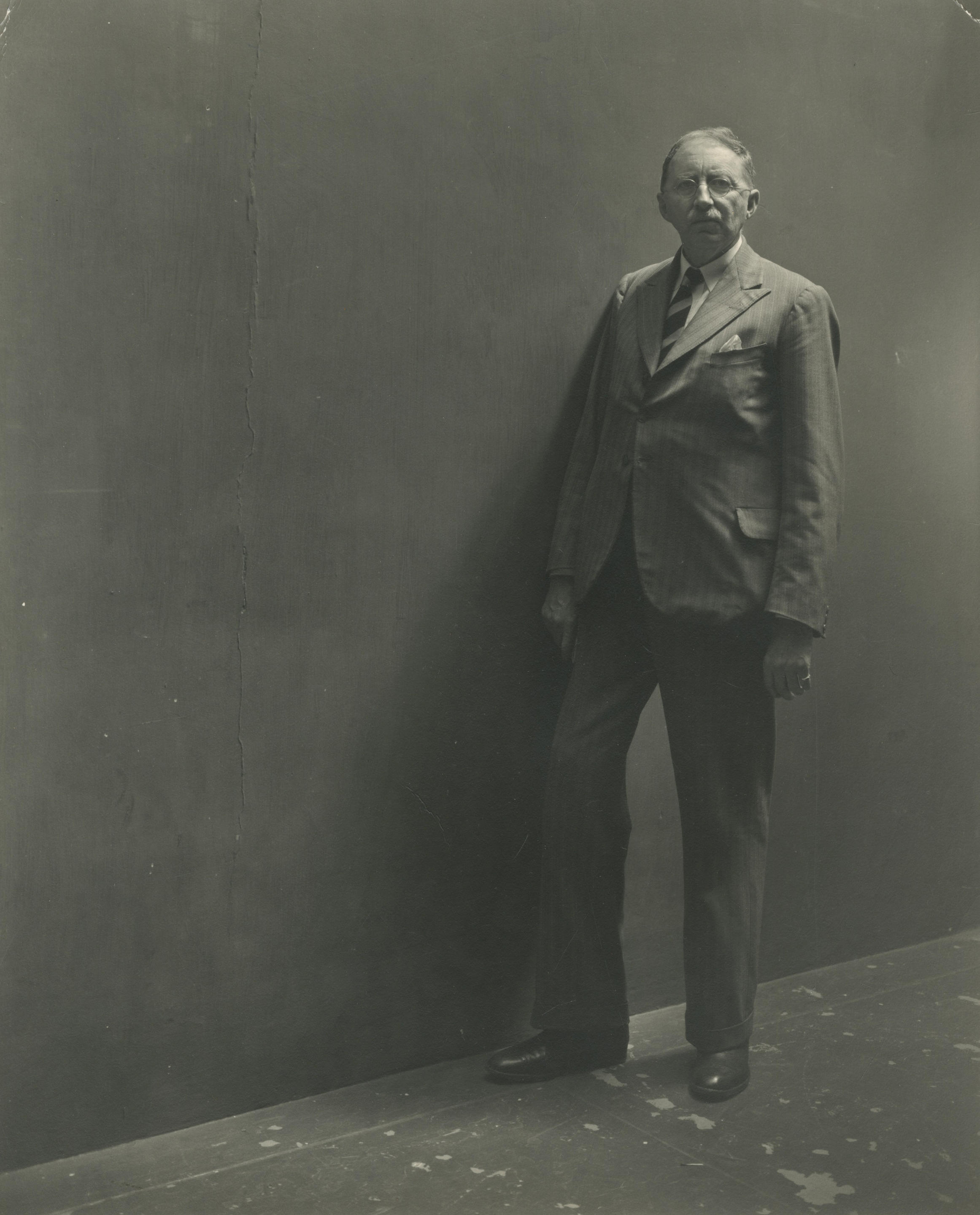

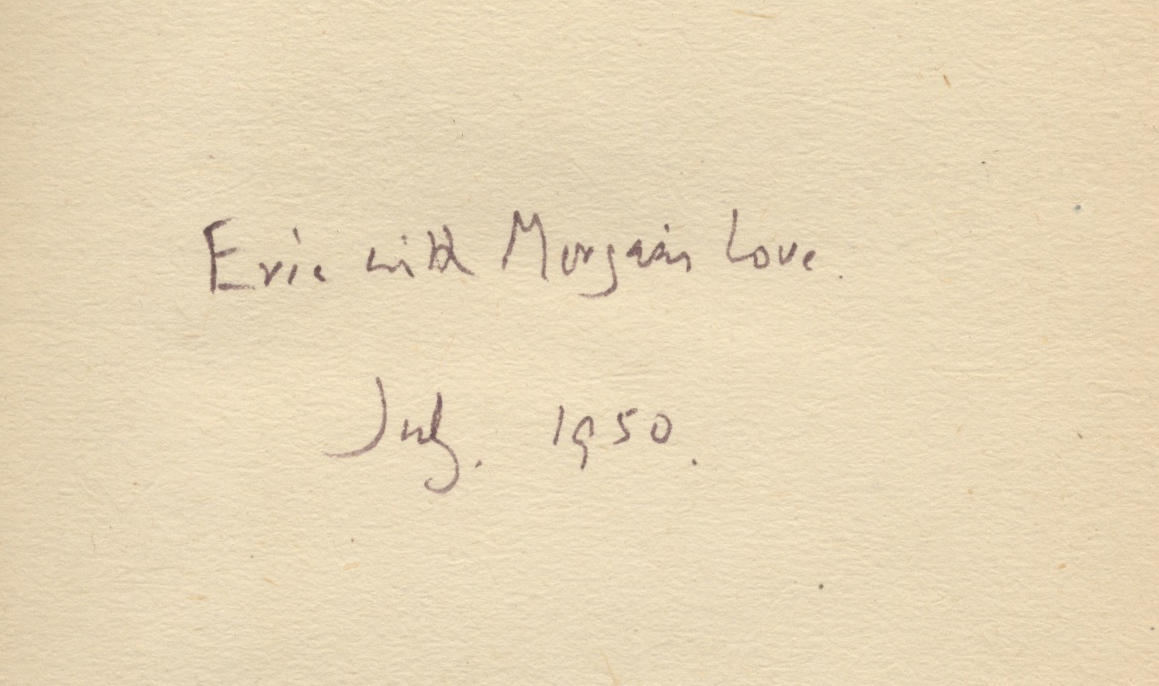




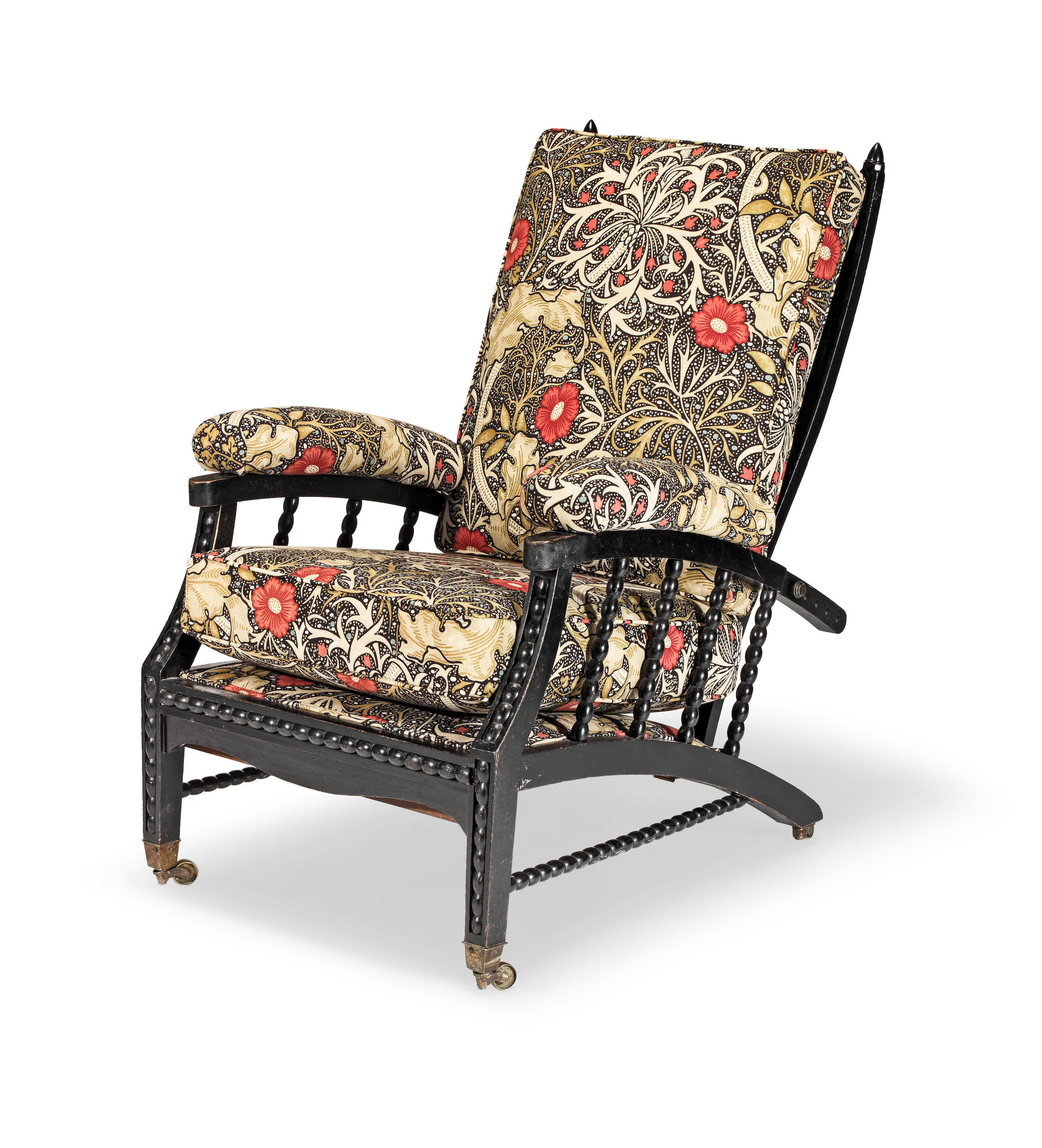

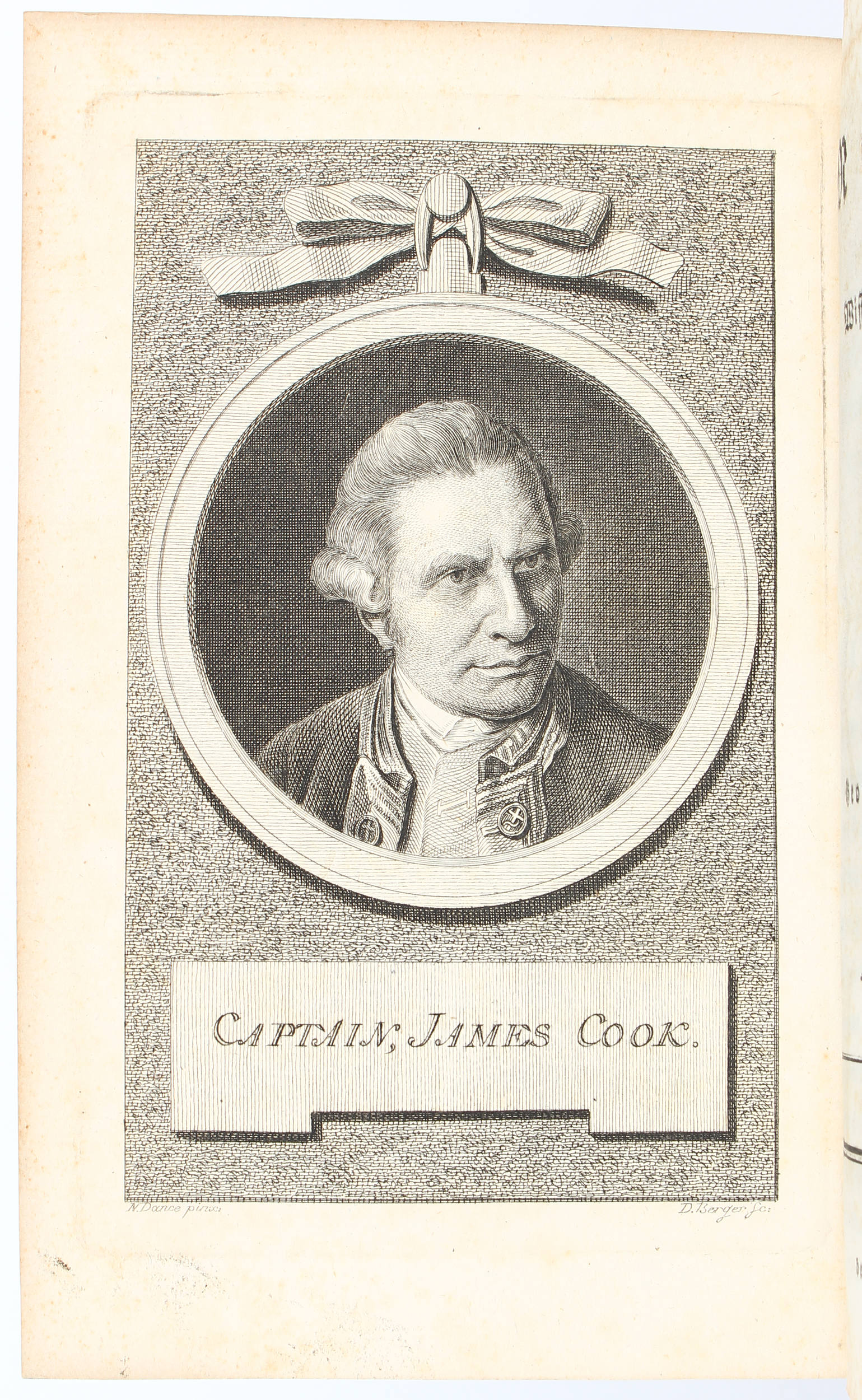
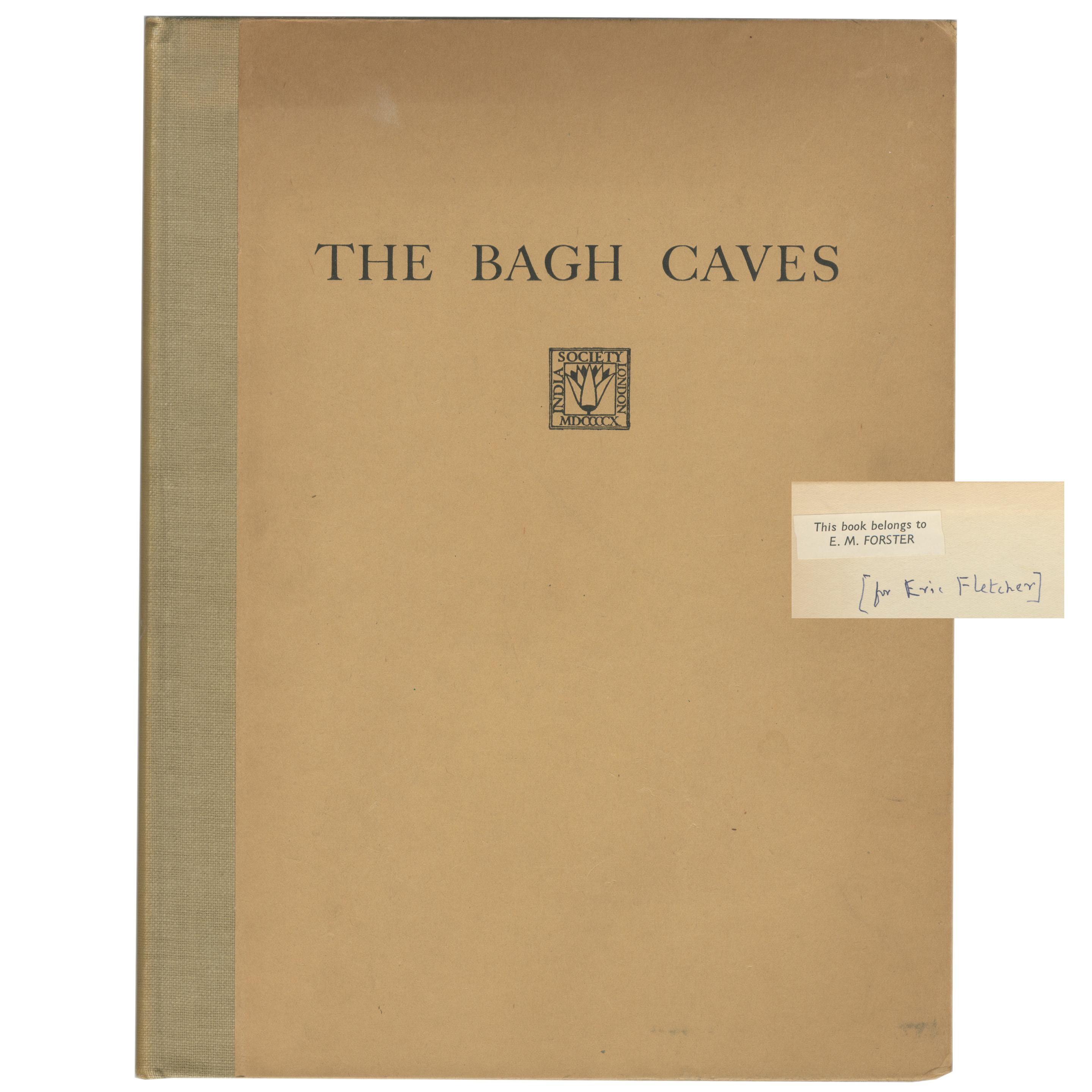
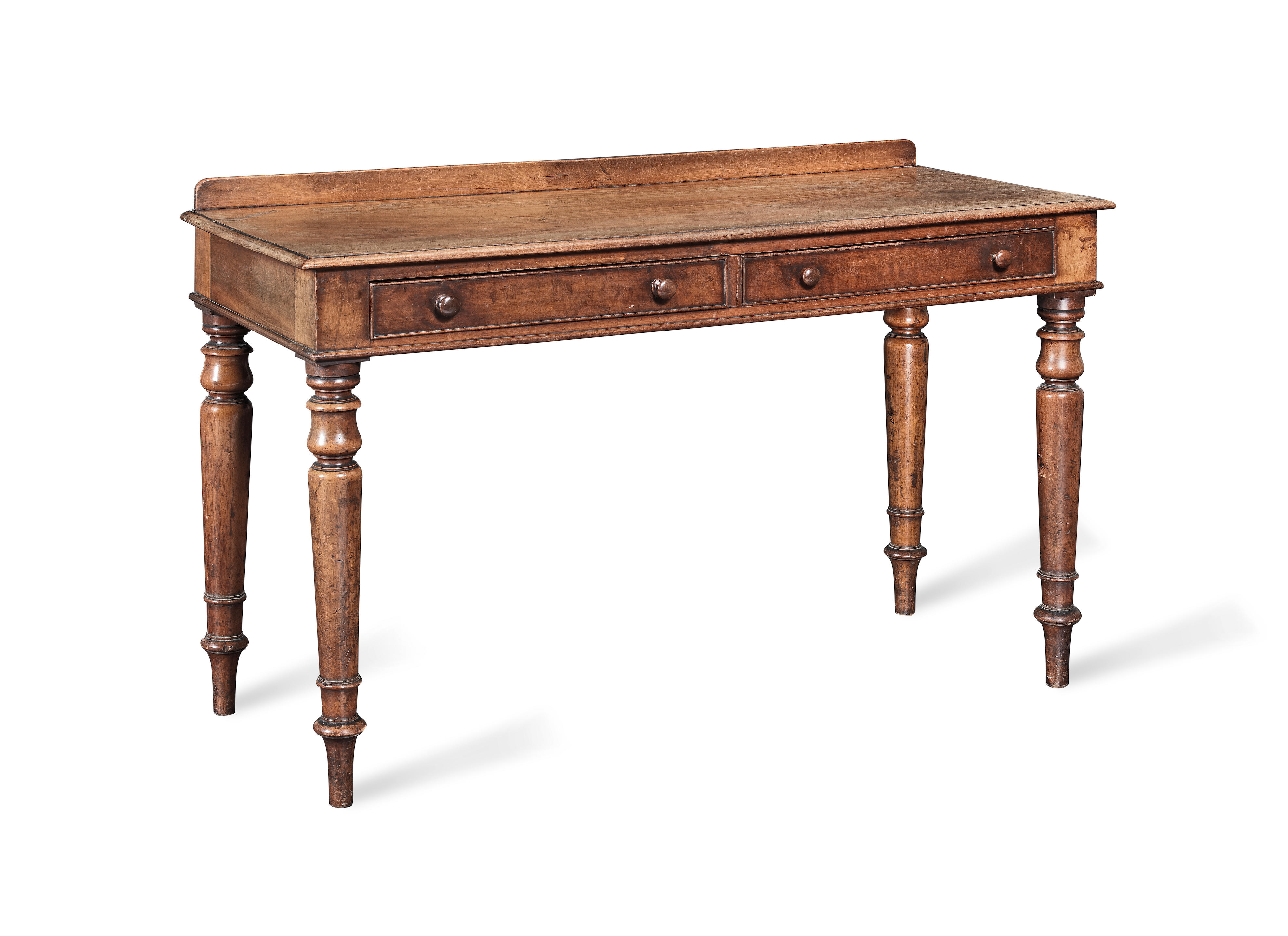



Testen Sie LotSearch und seine Premium-Features 7 Tage - ohne Kosten!
Lassen Sie sich automatisch über neue Objekte in kommenden Auktionen benachrichtigen.
Suchauftrag anlegen